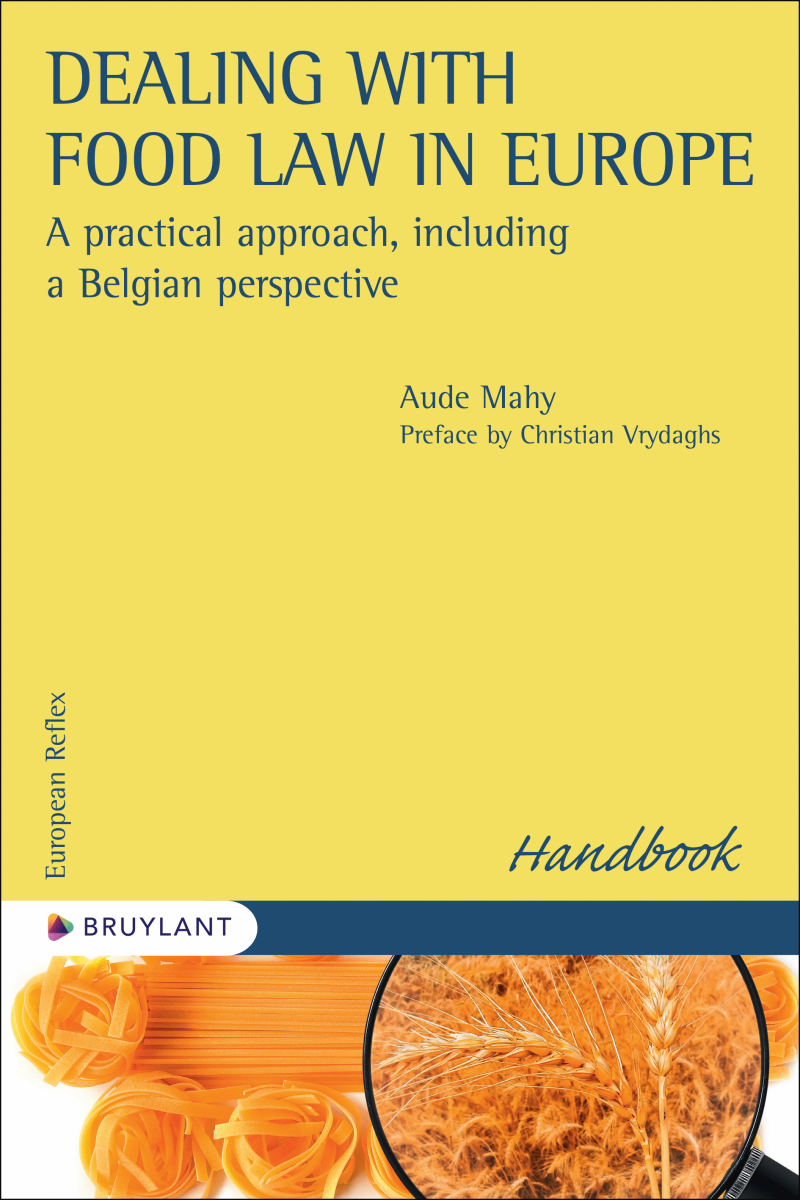 maestro
mastercard
visa
maestro
mastercard
visa

Dealing with food law in Europe
A practical approach, including a Belgian perspective

The food industry is regularly put in the spotlight, whether for good or for bad reasons. Let’s think of food incidents such as the mad cow crisis, dioxin in chicken, horsemeat scandal, eggs contaminated with fipronil, but also, on the positive side, to innovations and projects aimed at developing healthier and more sustainable food.
Food law has undergone considerable developments in recent decades, often driven by crises and current events, to the extent that it has become the most regulated sector in Europe. Yet it is still not – or hardly – taught in Belgian universities as an independent field of law.
However, mastering the subtlety of ever more complex texts is a growing challenge for companies. The questions are indeed multiple and often sensitive: food safety issues, constraints and opportunities of bringing (new) products to the market, and the development of marketing strategies.
This is the added value of this book: deciphering European food law and illustrating it with concrete applications. A special perspective on how the regulations are implemented and enforced in Belgium is also included.
Pragmatic but precise, it is the essential tool for any actor in the food sector who wishes to understand the ins and outs of food law, from production to marketing.
Digital version available on :
- Strada lex Belgium
- Strada lex Luxemburg
- Strada lex Europa
You have a subscription? Activate the digital version for free with the code in the book.
| Type of product | Book |
|---|---|
| Format | Paperback |
| EAN / ISSN | 9782802772453 / 9782802773108 |
| Series name | Réflexe européen |
| Weight | 890 g |
| Status | Available |
| Number of pages | 582 p. |
| Access to exercice | No |
| Publisher | Larcier |
| Language | English |
| Publication Date | Feb 22, 2023 |
| Available on Strada Belgique | Yes |
| Available on Strada Europe | Yes |
| Available on Strada Luxembourg | Yes |
Contents
Acknowledgments
Foreword
Preface
List of abbreviations
Title 1 – Introduction to food law
Title 2 – The food business operator
Title 3 – Production conditions for foodstuffs
Title 4 – Incident management
Title 5 – Regulated foods
Title 6 – Functional foods
Title 7 – Food of differentiated quality
Title 8 – Food information
Title 9 – General conclusions and outlook